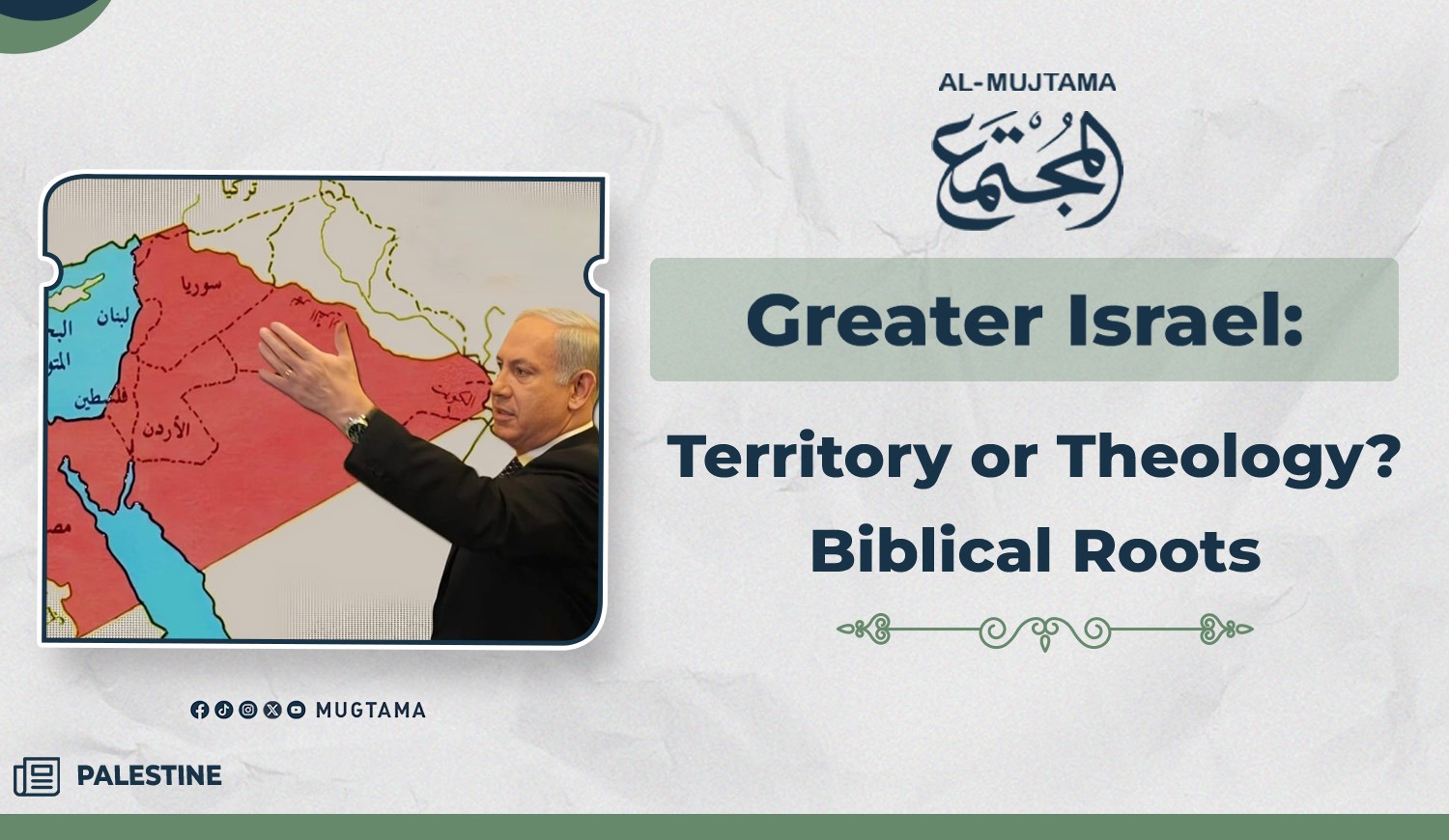Greater Israel: Territory or Theology? Biblical Roots

Netanyahu’s
Open Endorsement of Greater Israel
In an interview with
Israel’s i24 channel last Tuesday, Benjamin Netanyahu said he feels a
“strong” attachment to the extremist vision of a “Greater Israel.”
Speaking in Hebrew, Netanyahu added that he is on a “historic and
spiritual” mission, according to translations by The Times of Israel and
Middle East Eye.
In the same interview,
the host gave Netanyahu a talisman, not visible on screen, which he said
depicted “Greater Israel” and “the map of the Promised Land.” When asked
whether he agreed with this vision of Israel, Netanyahu replied, “Very much
so.”
Defining
the Boundaries of the Greater Israel Concept
The term “Greater Israel” refers to a Zionist
vision promoted by extremists, calling for the conquest of Gaza, the
occupied West Bank, and East Jerusalem, in addition to the Sinai Peninsula,
Syria’s Golan Heights, and Jordan. Even more alarming, some versions of
“Greater Israel” extend to include Lebanon and other parts of Syria and Egypt,
as well as parts of Iraq and Saudi Arabia.
Political
Leaders Who Advocate for Greater Israel
Bezalel Smotrich, the Zionist finance minister, and a key
partner in the governing coalition, has previously promoted the idea of
“Greater Israel.”
Last year, in an
interview conducted for a documentary film, Smotrich stated that he believes
Israel should expand to include Palestine, Jordan, Lebanon, Egypt, Syria, Iraq,
and Saudi Arabia.
Middle East Eye quoted him as saying:
“The future of Jerusalem is to expand to Damascus.”
This was what Smotrich
promoted before October 7, 2023. In a speech delivered in Paris in March 2023,
he displayed a map of “Greater Israel” that included Palestine within its
borders, stating: “There is no such thing as a Palestinian people.”
The
Biblical Foundations of the Zionist Ambition to Greater
Israel
The concept of “Greater
Israel,” stretching from the Nile to the Euphrates, is often linked to biblical
texts.
·
The Book of Genesis speaks of God’s covenant with Abraham, saying: “To your
descendants I give this land, from the river of Egypt to the great river, the Euphrates.”
The Book of Deuteronomy declares to the Israelites: “Every place where you
set your foot will be yours.”
Zionist
Leaders Who Shaped the Greater Israel Vision
In reality, senior
Zionist leaders align themselves with the biblical vision of the so-called
Greater Israel and do not hide these ambitions, expressing them in their
writings, interviews, and literature.
· Theodor Herzl, the
father of modern Zionism, agreed in his 1898 diaries to a proposal by his
colleague Max Bodenheimer to establish a Jewish state extending “from the
Valley of Egypt to the Euphrates,” calling it “excellent.”
· In his 1896 book The
Jewish State, Herzl envisioned a state with
northern borders on the mountains facing Cappadocia (in modern-day Turkey) and
southern borders on the Suez Canal.
·
Rabbi Fischmann, a member of the Jewish Agency for
Palestine who helped draft Israel’s Declaration of Independence, stated to the
United Nations Special Committee of Inquiry in 1947 that “The Promised Land
extends from the River of Egypt to the River Euphrates, and includes parts of
Syria and Lebanon.”
· Zeev Jabotinsky, the
developer of Revisionist Zionism in the 1920s, called for a “Greater Israel”
that would encompass all of Mandatory Palestine, including both banks of the
Jordan River, as well as parts of Jordan, Lebanon, Syria, and Egypt.
· After the declaration
of the State of Israel in 1948, Begin, a disciple of Jabotinsky, said: “Israel
has been established, but the homeland has not been fully liberated,” a
clear reference to his belief in the “Greater Israel” project, which extends
from the Nile to the Euphrates.
· Meir Kahane, the
extremist nationalist Knesset member, called for a theocratic Jewish state that
would include large parts of Egypt, Jordan, Syria, Lebanon, and Iraq.
· Although David
Ben-Gurion, Israel’s first prime minister, adopted a more pragmatic and
flexible approach toward borders, he stated in 1937 that “The partial Jewish
state is not the end, but only the beginning.”
These
ambitions are not hidden by Zionist leaders—there is no difference between
extremist and moderate among them. They do not conceal their intentions to
achieve this biblical goal through rivers of blood and ethnic cleansing.
·
·











